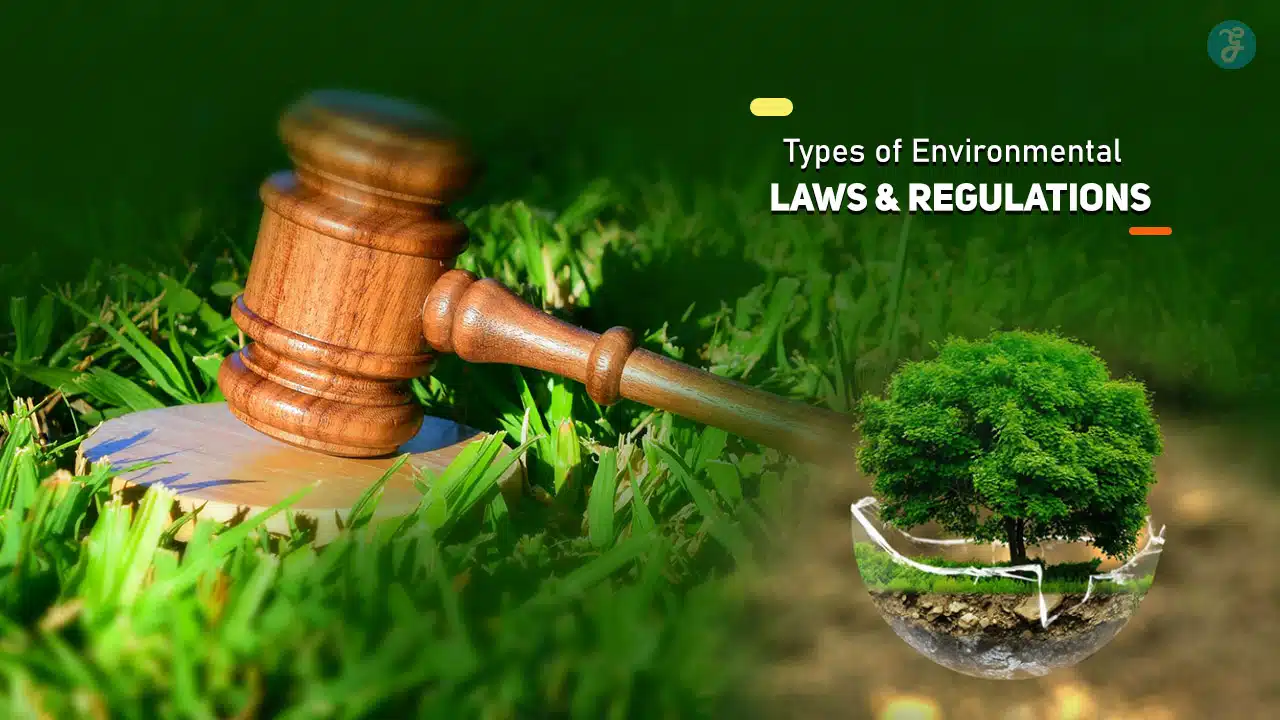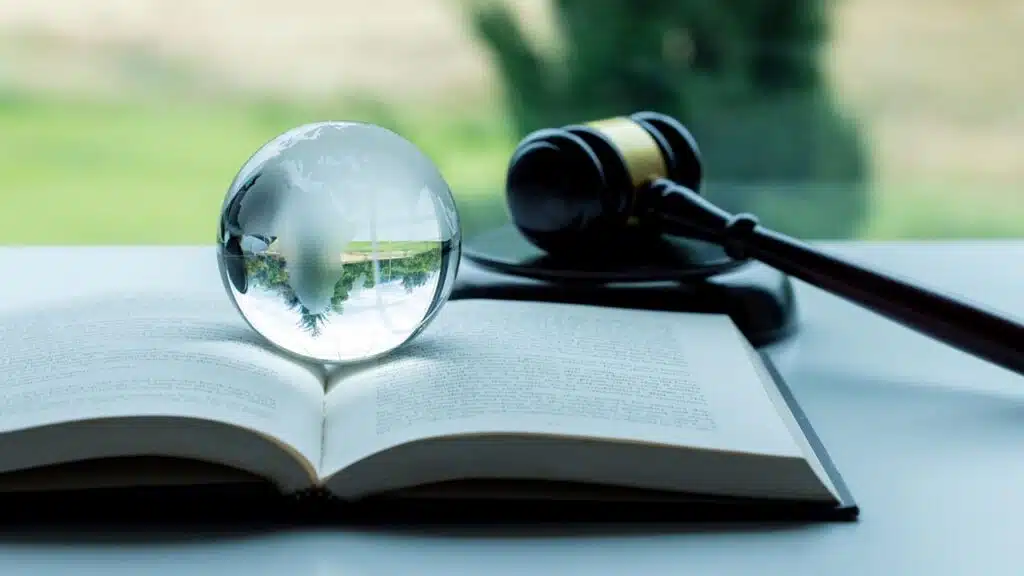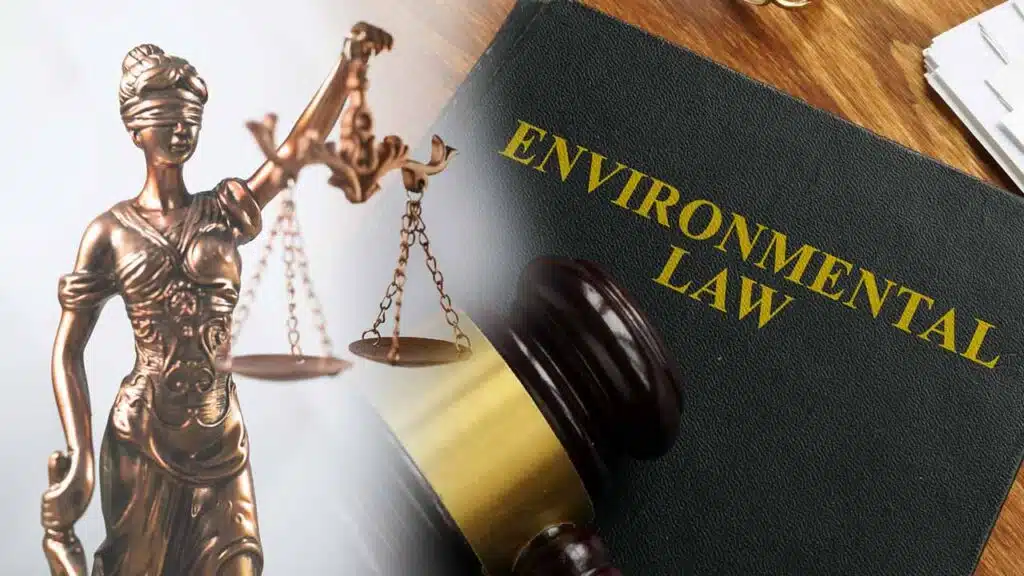Environmental laws and regulations are crucial for protecting the planet’s ecosystems, preserving natural resources, and ensuring a sustainable future for all living beings.
These laws establish guidelines and standards to regulate human activities that impact the environment, ensuring a balance between development and ecological preservation.
They address a wide range of concerns, including air and water quality, waste management, wildlife conservation, and climate change.
Understanding these laws is essential for individuals, businesses, and governments to comply with regulations and contribute to a healthier planet.
This article will explore the five main types of environmental laws and regulations, detailing their purpose, significance, and impact.
1. Air Quality Laws
Air quality laws aim to control pollution and improve the quality of the air we breathe. These regulations are vital for public health, as air pollution can cause respiratory diseases, cardiovascular issues, and other serious health problems. Moreover, clean air is essential for maintaining ecosystems and mitigating climate change.
Key Components of Air Quality Laws
- Emission Standards: These laws set limits on the amount of pollutants that factories, vehicles, and other sources can emit into the atmosphere. For example, the U.S. Clean Air Act establishes National Ambient Air Quality Standards (NAAQS) to regulate common pollutants like sulfur dioxide and carbon monoxide.
- Industrial Compliance: Businesses and industries are required to use pollution control technologies, such as scrubbers and filters, to reduce harmful emissions. Regular inspections ensure compliance with these standards.
- Vehicle Emission Regulations: Many countries have introduced vehicle emission standards to reduce pollutants from cars, trucks, and buses. Transitioning to electric vehicles and promoting public transport are part of these efforts.
- Smog and Ozone Management: Air quality laws often include measures to address smog and ground-level ozone, which can harm human health and vegetation.
By regulating air quality, these laws protect communities from the harmful effects of air pollution while contributing to global efforts to combat climate change.
2. Water Protection Laws
Water protection laws are designed to preserve the quality and availability of freshwater resources, which are essential for drinking, agriculture, industry, and ecosystems. These laws regulate pollution, manage water usage, and protect aquatic habitats.
Key Components of Water Protection Laws
- Pollution Prevention: Laws like the Clean Water Act in the U.S. prohibit the discharge of pollutants into rivers, lakes, and oceans without proper permits. Industries must treat wastewater before releasing it into water bodies.
- Wetland Conservation: Wetlands play a critical role in water filtration, flood control, and biodiversity. There are laws in place to prevent development projects from draining or destroying wetlands.
- Drinking Water Standards: Regulations ensure that public water supplies meet safety standards to prevent contamination by harmful substances like lead, arsenic, and bacteria.
- Marine Protection: International agreements, such as the MARPOL Convention, regulate pollution from ships to protect marine ecosystems from oil spills, plastic waste, and hazardous chemicals.
Water protection laws are fundamental for ensuring that communities have access to clean and safe water, preserving aquatic life, and maintaining the health of ecosystems.
3. Waste Management and Recycling Laws
Waste management laws regulate the collection, treatment, and disposal of waste to minimize its environmental impact. These laws also encourage recycling and the sustainable use of resources, reducing the burden on landfills and conserving natural materials.
Key Components of Waste Management Laws
- Hazardous Waste Regulation: Laws like the Resource Conservation and Recovery Act (RCRA) in the U.S. govern the handling, storage, and disposal of hazardous waste to prevent soil and groundwater contamination.
- Landfill Standards: Regulations ensure that landfills are designed and operated in a way that prevents leachate and methane emissions, protecting nearby communities and ecosystems.
- E-Waste Management: With the growing problem of electronic waste, laws require proper recycling and disposal of items like smartphones, computers, and batteries to recover valuable materials and reduce toxic waste.
- Recycling Mandates: Many countries and municipalities have implemented laws requiring households and businesses to separate recyclable materials, such as paper, plastics, and metals, from general waste.
Waste management laws play a crucial role in reducing pollution, conserving resources, and promoting sustainable practices that benefit the planet and future generations.
4. Wildlife Conservation Laws
Wildlife conservation laws are designed to protect endangered species, preserve biodiversity, and maintain ecosystems. These laws regulate activities like hunting, fishing, logging, and land development to ensure that wildlife populations and their habitats are not threatened.
Key Components of Wildlife Conservation Laws
- Endangered Species Protection: Laws like the Endangered Species Act in the U.S. provide legal protection for species at risk of extinction, prohibiting activities that harm them or their habitats.
- Habitat Preservation: Conservation efforts often involve protecting critical habitats, such as forests, wetlands, and coral reefs, from destruction or degradation.
- Sustainable Hunting and Fishing: Regulations set limits on hunting and fishing to prevent overexploitation of wildlife populations, ensuring long-term sustainability.
- Combatting Illegal Wildlife Trade: International agreements, such as the Convention on International Trade in Endangered Species (CITES), aim to combat the illegal trade of animals and plants, protecting species like elephants, rhinos, and tigers.
Wildlife conservation laws are essential for maintaining ecological balance, protecting species from extinction, and preserving the natural beauty of the planet.
5. Climate Change and Energy Laws
Climate change laws focus on reducing greenhouse gas emissions, promoting renewable energy, and mitigating the impacts of global warming. These laws are critical for addressing one of the most pressing environmental challenges of our time.
Key Components of Climate Change and Energy Laws
- Carbon Emission Reductions: Policies like carbon pricing and emissions trading systems incentivize businesses to reduce their carbon footprints by assigning a cost to pollution.
- Renewable Energy Promotion: Many governments have implemented laws and subsidies to support the development and adoption of renewable energy sources, such as solar, wind, and hydroelectric power.
- Energy Efficiency Standards: Regulations require appliances, vehicles, and buildings to meet energy efficiency standards, reducing energy consumption and emissions.
- International Agreements: Treaties like the Paris Agreement bring nations together to set goals for limiting global temperature rise and transitioning to low-carbon economies.
Climate change and energy laws are vital for protecting the planet from the long-term impacts of global warming, ensuring a sustainable future for humanity and the environment.
Conclusion
Environmental laws and regulations are the cornerstone of efforts to protect our planet’s resources and ecosystems.
From air quality and water protection to waste management, wildlife conservation, and climate change mitigation, these laws address the most critical environmental challenges of our time.
Understanding these laws not only helps individuals and organizations comply with regulations but also empowers them to contribute to a more sustainable and eco-friendly future.
As the world faces increasing environmental pressures, strengthening and enforcing these laws will be essential for safeguarding the planet for future generations. By prioritizing sustainability and adhering to these regulations, we can collectively work toward a healthier, cleaner, and more resilient Earth.







































